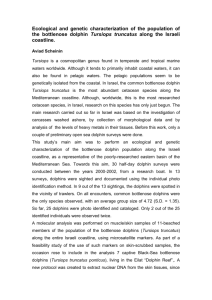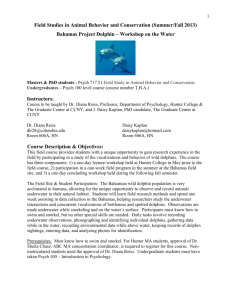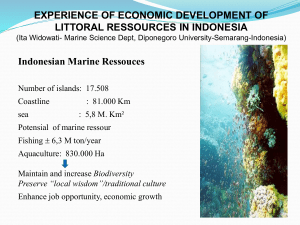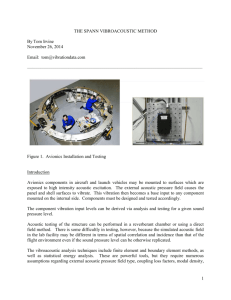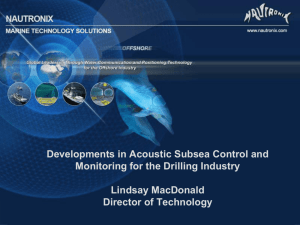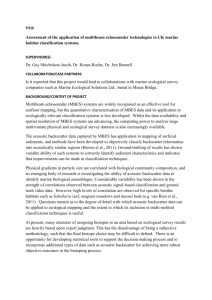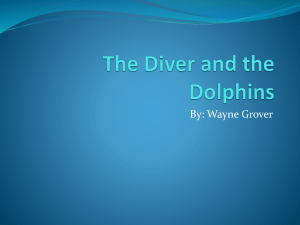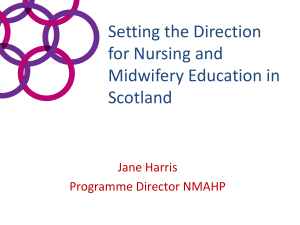(total alkalinity and dissolved inorganic carbon) at a Scottish
advertisement
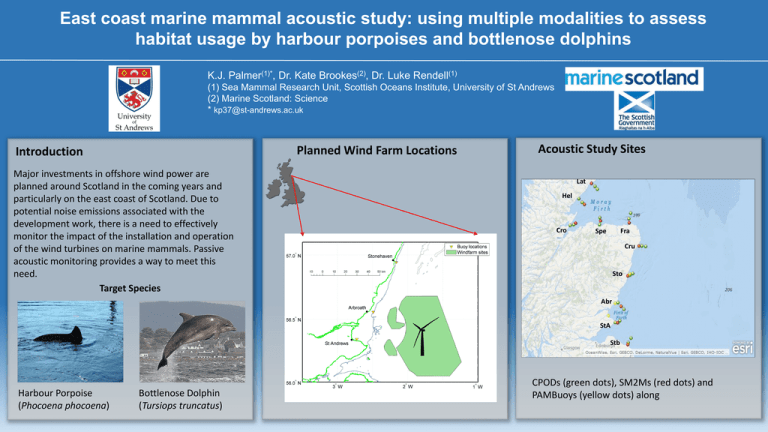
East coast marine mammal acoustic study: using multiple modalities to assess habitat usage by harbour porpoises and bottlenose dolphins K.J. Palmer(1)*, Dr. Kate Brookes(2), Dr. Luke Rendell(1) (1) Sea Mammal Research Unit, Scottish Oceans Institute, University of St Andrews (2) Marine Scotland: Science * kp37@st-andrews.ac.uk Planned Wind Farm Locations Introduction Major investments in offshore wind power are planned around Scotland in the coming years and particularly on the east coast of Scotland. Due to potential noise emissions associated with the development work, there is a need to effectively monitor the impact of the installation and operation of the wind turbines on marine mammals. Passive acoustic monitoring provides a way to meet this need. Target Species Acoustic Study Sites Lat Hel Cro Fra Spe Cru Sto Abr StA Stb Harbour Porpoise (Phocoena phocoena) Bottlenose Dolphin (Tursiops truncatus) CPODs (green dots), SM2Ms (red dots) and PAMBuoys (yellow dots) along Materials Archival Data Sources C-POD/SM2M Deployment Duration (Year 1 of 4) C-PODs Jun-13 • 30 Units • Continuous monitoring • dolphin/porpoise positive time Jul-13 Aug-13 Sep-13 Sep-13 Oct-13 Nov-13 Nov-13 Dec-13 Lat Lat Hel Hel Cro SM2Ms • • • • Jul-13 Cro Spe 10 SM2Ms Duty-cycled Acoustic Data 96 kHz Sample Rate Spe Fra Cru Sto Sto Abr Abr Real-Time Acoustic Data PAMBuoy StA Rate (per 30 minutes) 1000 800 Stb 600 Stb 400 200 0 15/08 20/08 25/08 30/08 04/09 09/09 14/09 19/09 24/09 Whistle data starting 17-Sep-2011 13:10:30 16 Frequency (kHz) • 3 PAMBuoys • Continuous strategic acoustic monitoring • Timed recordings • Dolphin whistle contour extractions • Ambient noise levels StA Whistle rate data for 20110816 to 20110924; Frequency range [5-15] kHz, rate per 30 minutes 1200 14 12 10 8 6 4 50 51 52 53 54 Time (seconds) 55 56 57 29/09 Temporal coverage of CPODs (green) and SM2Ms (red) data from the first year of the acoustic study. Our challenge will be to integrate these disparate data sources in order to gain meaningful insights to habitat selection of protected bottlenose dolphins and harbor porpoises. Preliminary CPOD Results Future Aims and Objectives 1. Determine baseline habitat use by bottlenose dolphins and harbour porpoises along the East Scottish Coast 2. Determine ambient noise levels at 11 deployment locations 3. Develop analysis methods for processing high volume acoustic data 4. Track individual bottlenose dolphins based on signature whistles Acknowledgements This work was co-sponsored by the University of St. Andrews School of Biology and Marine Scotland. This work received funding from the MASTS pooling initiative (The Marine Alliance for Science and Technology for Scotland) and their support is gratefully acknowledged. MASTS is funded by the Scottish Funding Council (grant reference HR09011) and contributing institutions. PAMBuoys were supported by the Crown Estate and Scottish Enterprise. We are grateful to Moray First Marine, the crew of the Northern Lighthouse Board’s Polestar, the crew of the RV Alba na Mara, and Marine Scotland Science staff for deploying and recovering the archival units.

